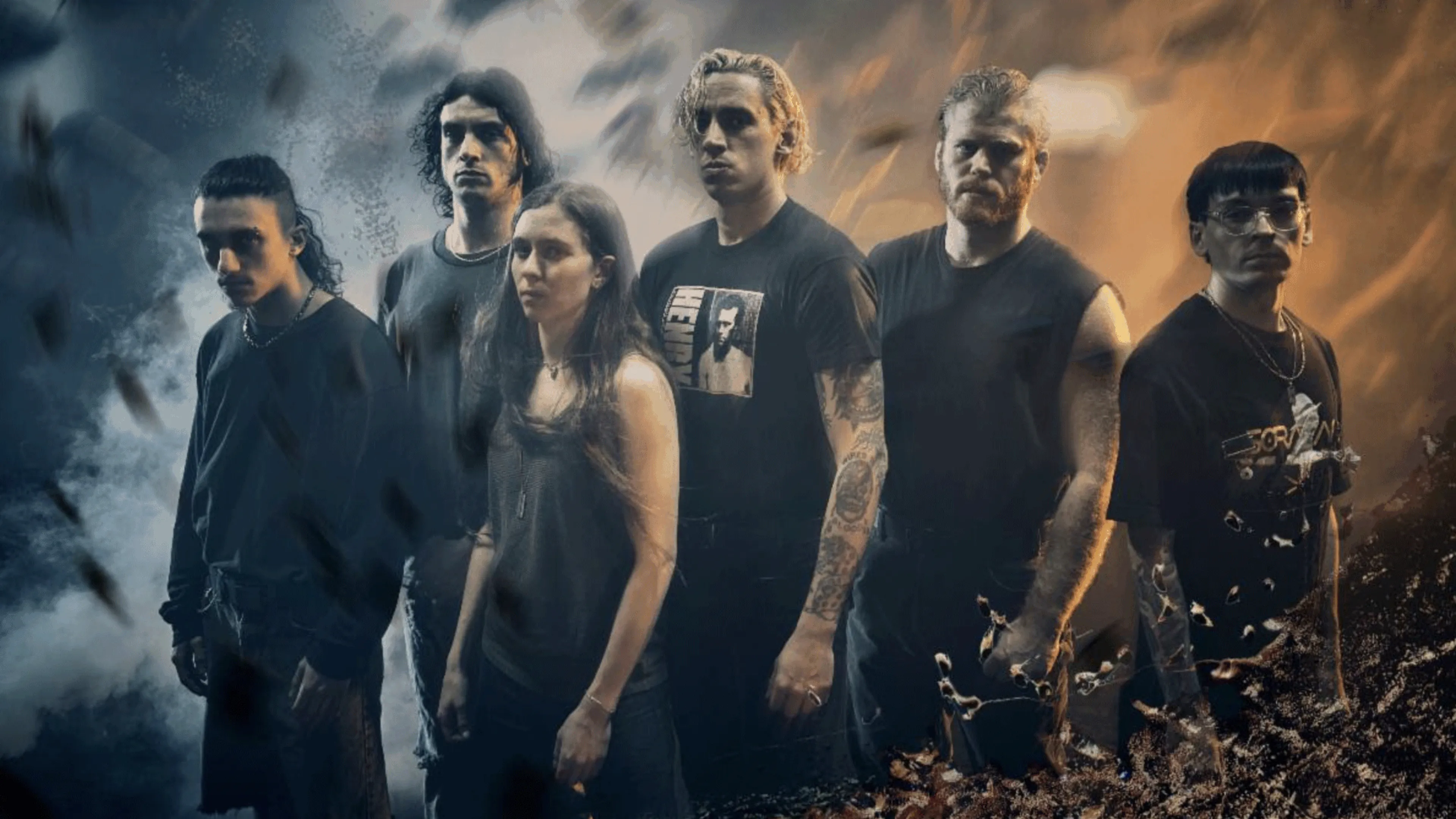Even more than normal, there is a nervous energy crackling between Jami Morgan and Reba Meyers. Fidgeting on the roof of Manchester’s massive Depot Mayfield, Code Orange’s frontman and guitarist might be hours from their long-overdue first UK show in support of incredible third record Underneath – K!’s Album Of The Year 2020 – in front of a raucous Outbreak Fest faithful, but their focus is already trained on the road ahead. Timescales are driven home, not just for the release of new music, but for when we can talk about it. Complex creative agendas are unpacked. Far more than a companion piece to their previous album, they stress, The Above is both defining statement and a conclusive chapter for their journey under the ‘Code Orange’ banner thus far.
And what a body of work it is. While the band are at pains that we don’t unwrap too many of the surprises to come, it is safe to say that the cross-pollination of their trademark industrialised hardcore with the strains of alt. rock so obvious on epic lead single Take Shape (featuring Smashing Pumpkins frontman Billy Corgan) feels like a watershed moment. A bold, bruising statement, it feels like a make-or-break shot at greatness. And Code Orange don’t seem to know how to miss…
Is it an oversimplification to say that The Above is a counterpoint or continuation to Underneath?
Jami Morgan (vocals): “It’s definitely a brother or sister record to Underneath, with a lot of shared themes. But this comes from a more personal and emotional point of view, with a lot of sonic differences – both by design and via the feelings we wanted to convey. Underneath felt very digital, technological, claustrophobic. This album is more open and natural. There are still tinges of the digital in there – like a sci-fi through-line – but The Above is more human, in how we made it, what its about, and the whole aesthetic. It completes a journey that we started with I Am King.”
What was driving that new, more personal, emotional purpose?
Reba Meyers (guitar): “We’ve always been this way, and had this in us. It’s more that now we’re willing to get everything out there. During the whole pandemic period, we were able to dig into ourselves more and more: figuring out what we wanted to write, how we wanted to feel. Touring kinda stunts you in a way. You’re stuck out there living the same thing every day, not growing your relationships, not growing as normal people do. Being at home writing helped us figure out that this is who we are and this is what we want to do. The older we get, the more we’re not afraid of anything.”
Jami: “There are a lot of things drawn from the pandemic experience and everyday life, but, ultimately, it stems from the same thing that all our records do. There is a continuity between this and our other three albums [2012’s Love Is Love/Return To Dust excluded as a ‘Code Orange Kids’ release]. It has a lot in common with I Am King, particularly, in that both records are about self-worth, self-confidence, self-assurance. I Am King is about forcing yourself to feel that. This record is the other side of the coin: accepting whatever 'yourself' is, regardless of where it leads you. There’s a lot of synergy, but, in the end, it’s all about the journey of self.”
